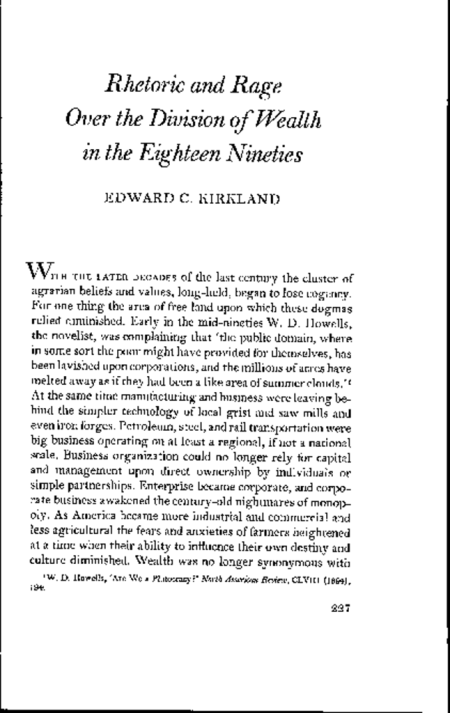By the 1890's the United States could claim a number of millionaires, but the number of poor caused some Americans to suggest a division of wealth. Despite identification with the American ideal of equality, dedicated leaders, enthusiasm, and a passion for "social justice," the movement for the redistribution of wealth failed. The reason may have been not so much counter-ideology as it was events and circumstances such as: 1) the impracticability of dividing accumulated wealth; 2) the fact that organized labor realized that total wealth increased through investment of capital by the rich; and 3) the fact that the visibly increasing wealth itself furnished reasons against the idea of its division. While historians have generally accepted the explanation that the turmoil of the 1890's was caused by distress, an alternate theory was offered by the 'Nation' in 1895 - that some object of reprobation seemed essential to every age, and that of the 1890's was the "outcome of prosperity." Based mainly on published material; 50 notes.
Rhetoric and Rage Over the Division of Wealth in the Eighteen Nineties.
Publication Date
Volume
79
Part
2
Page Range
227-244
Proceedings Genre
